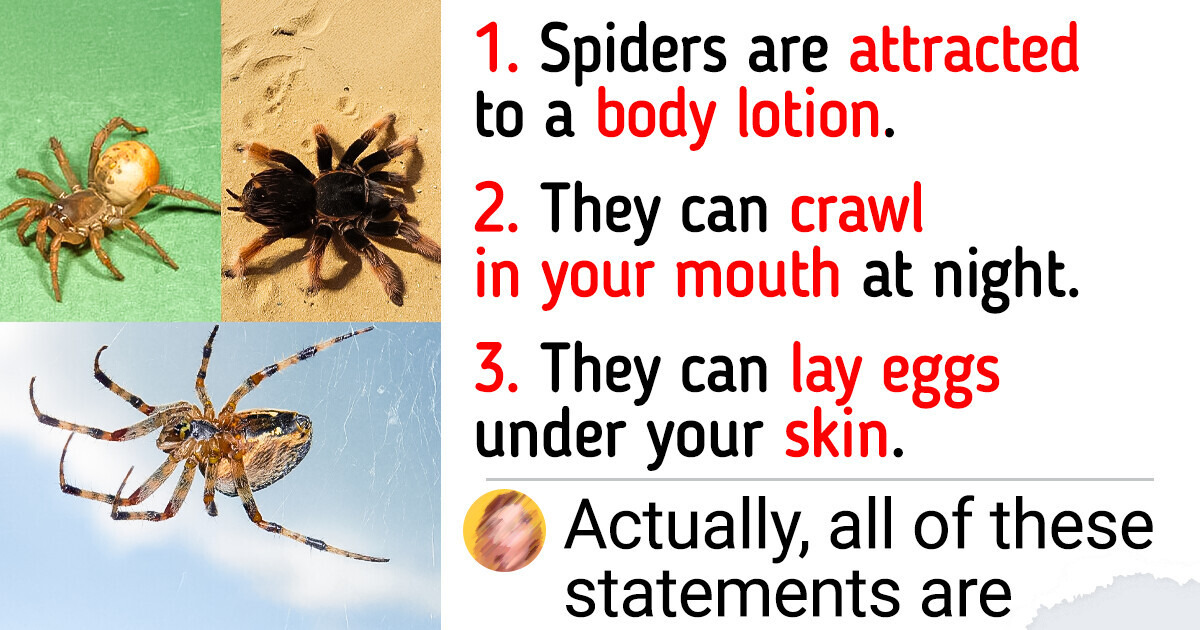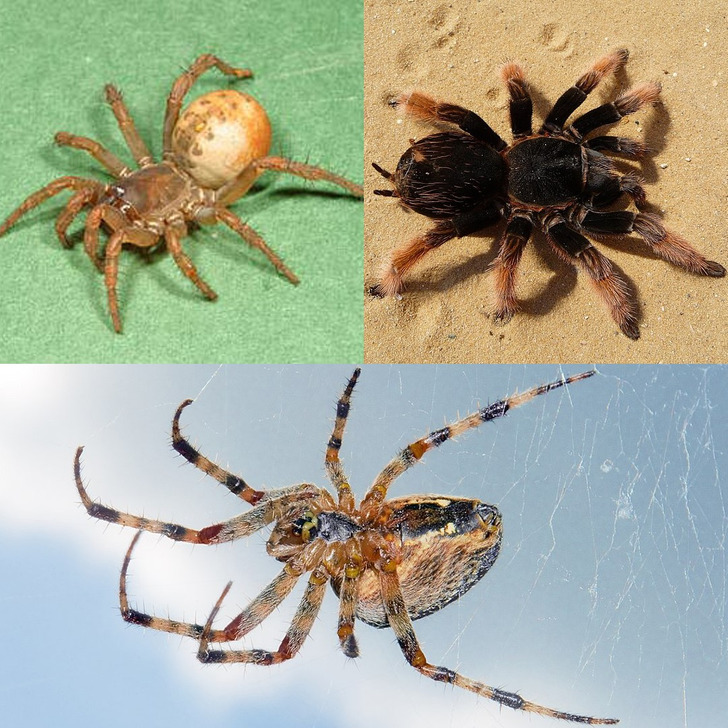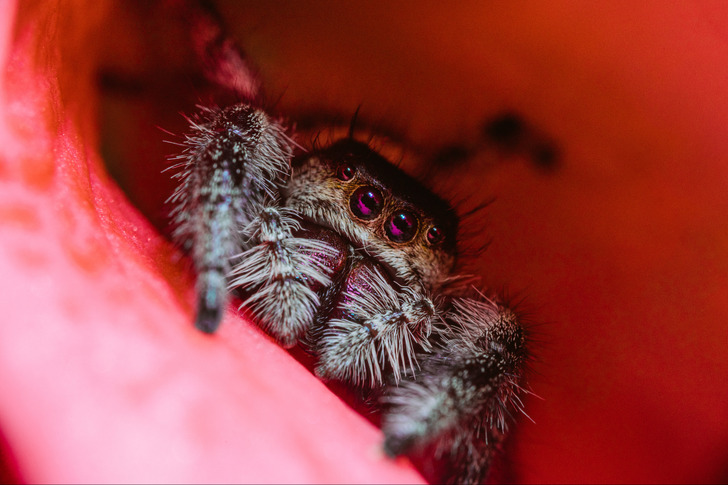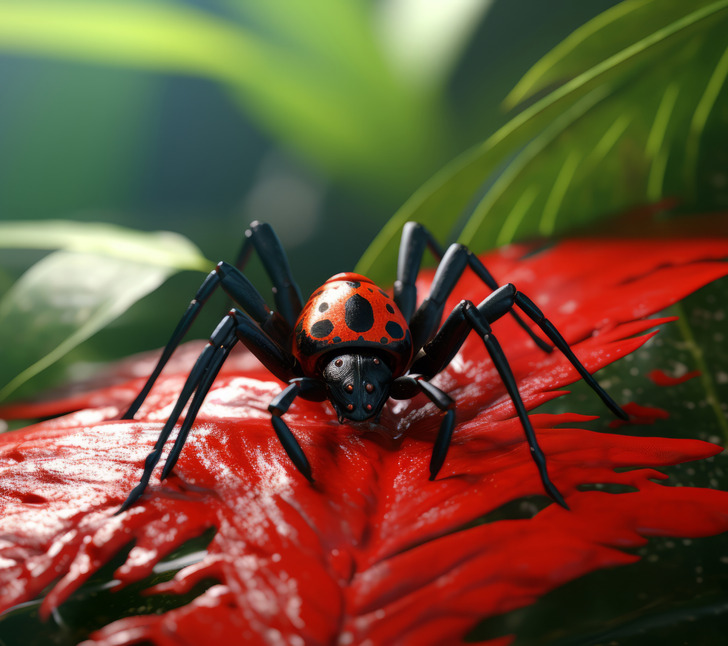Here’re Some Fresh Facts About Spiders That Prove Everything You Know About Them Is Wrong / Bright Side
Some time ago, there was a social media panic over a customer product review suggesting that wolf spiders were attracted to a popular brand of body lotion. There’re so many legends and myths about spiders that no wonder so many people have arachnophobia. We’re here to debunk some popular myths about spiders, with the help of real experts. And you’ll get a splendid chance to find out even more curious things about these tricky creatures.
An ordinary customer review about body lotion created quite a stir on the internet.
A Reddit post featuring a one-star review of a lotion sparked widespread attention after claiming the product attracted spiders—specifically wolf spiders. Despite their intimidating name, wolf spiders are harmless enough that UC biology students regularly handle them barehanded.
Very quickly, the Reddit thread had amassed more than 700 comments, while reviewers on the brand’s page vowed to keep their feedback spider-free moving forward.
The unusual saga even caught the attention of the most reputable and popular media outlets.
The urban legend gained momentum as other Reddit users speculated the lotion might contain spider mating pheromones or chemicals that signal mating readiness.
The “body lotion horror story” turned out to be just a myth.
A University of Cincinnati biologist stepped in to help debunk the latest social media frenzy sparked by a Reddit review. Professor George Uetz from UC’s College of Arts and Sciences, who studies wolf spiders with his students, weighed in on the matter.
While his research has uncovered fascinating spider behaviors—especially their use of visual signals and vibrations to communicate—he has found no evidence suggesting wolf spiders are attracted to the scent of body butter.
The expert has also commented on the theory that suggested the body lotion contained pheromones that might have been attracting spiders while they were mating. Uetz, a seasoned researcher with over 200 published studies, primarily on spiders, told the New York Post that pheromones are highly species-specific.
“The internet is a great source of information, but it’s not always accurate,” Uetz said. “Someone putting a dab of body butter on a tissue and reporting on Reddit that it attracts spiders doesn’t count as research.”
Spiders do have bad reputation among people, but it’s mostly undeserved.
Rod Crawford, a spider expert and curator of arachnology at The Burke Museum, says, that spiders are phenomenal ecosystem engineers. “Suppose some arachnophobic magician could wave a magic wand and make all spiders disappear,” says Crawford. “That would be the greatest ecological catastrophe that ever happened.”
Acknowledging their importance begins with dispelling the unflattering rumors that surround them. To those, who believe that spiders are here to bite us, Rod Crawford has a very convincing explanation. According to him, most people will never be bitten by a spider in their lifetime. Mr Crawford explained that spiders actually have little interest in interacting with humans.
Of the 50,000+ species found worldwide, only a small fraction ever comes into contact with people. Unlike mosquitoes, ticks, or bedbugs, spiders are not bloodsuckers and have no reason to seek us out.
Dimitar Stefanov Dimitrov, a spider evolution expert at the University Museum of Bergen in Norway, says, that although it’s common to wake up with small skin bumps or sores and blame a spider, but in most cases, there’s no evidence to suggest a spider is the culprit. Most spiders’ tiny fangs are so small that any bite would barely leave a noticeable mark.
Experts debunked the common”spider myths”, and it can be a relief to someone, who’s afraid of these creatures.
Some myths about spiders have become so widespread, that they make people feel anxious, scared and even panicky when it goes about spiders. Actually, all of these statements are false. Rob Crawford authoritatively debunked the most horrible tales about these not-so-horrible creatures, and this is the truth that every person must find out in order to feel relaxed.
Here’re the most common myths about spiders:
- We swallow some spiders in our sleep every year because they can crawl in your mouth at night.
Over the years, various online forums and publications have perpetuated the claim that humans swallow up to eight spiders in their sleep each year. However, according to Crawford, there is no verified study, photographic evidence, collected specimen, medical record, or documented observation of a spider crawling—or attempting to crawl—into a person’s mouth.
Spiders have no interest in our smelly, steamy, panting mouths, which are often open during heavy breathing and snoring as we sleep. “A spider is not going to be attracted to that at all,” says Crawford. “The air current would disturb the tiny sensory hairs covering their bodies.”
- Spiders can lay eggs under your skin and other crevices of your body.
The story usually goes like this: a person returns from a tropical vacation with a pulsating bump on her cheek. Alarmed by its growth, she visits a doctor, who opens the welt only to unleash hundreds of tiny spiders crawling out.
This, however, never happened. According to Crawford, it’s one of the most widely believed urban legends, likely inspired by a German short story from the 1840s. In the tale, a woman’s cheek boil bursts with spiders after she makes a pact with the evil forces.
In reality, most spiders lack both the means and the inclination to burrow into human flesh to lay eggs, says Crawford. Even in the rare case of a spider bite, the creature injects venom through its small fangs rather than depositing eggs.
- When it gets cold, spiders crawl into your house up drains and sewers.
Some spiders have evolved to thrive outdoors, while others have adapted to live indoors. These distinct species rarely cross paths. Although outdoor spiders may occasionally wander inside, those accustomed to cold climates have little interest in seeking refuge in our warm homes.
“About 95 percent of the spiders you see indoors were always indoors—that’s where they hatched and grew up,” explains Crawford. “They belong to a small number of species that have been living around human-made buildings for as long as such structures have existed.”
That is also why spiders aren’t crawling up pipes and drains to move in with us. If you find a spider in your bathtub or near your sink, it’s probably a house spider trying to get a drink, says Crawford, since water sources inside the home are few and far between. The spider was already living in your house, and it was crawling towards the drain.
Plus, most plumbing pipes have a sediment-trapping section, constantly replete with water that most spiders wouldn’t be able to wade. Next time you see a spider in your house, remember it’s closer to a roommate than an intruder. Not only that, but they’re likely a helpful presence in your home’s ecosystem.
And here’s an interesting fact about spider silk that sounds unbelievable, but it’s actually 100% true.






